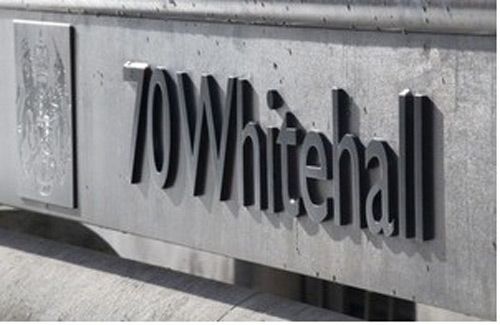 The Government has set out plans to ensure a third of central government spending is reserved for small businesses by 2020, in an effort to get more working on central government contracts.
The Government has set out plans to ensure a third of central government spending is reserved for small businesses by 2020, in an effort to get more working on central government contracts.
According to the Cabinet Office, central government spent £11.4bn with small and medium-sized businesses between 2013 and 2014, equivalent to 26% of its total spending. The new target of £1 for every £3 spent, unveiled by Matt Hancock, the minister for the Cabinet Office, would mean an extra £3bn per year (in 2013 to 2014 terms) going to small and medium-sized firms directly or through the supply chain.
Each government department and the Crown Commercial Service will now be obligated to set out individual plans and targets for spending with small and medium-sized businesses over the next five years.
Matt Hancock said: “This is such an amazing opportunity for the country’s diverse and innovative small businesses, and I urge them to get stuck in. From computers to uniforms – there are so many opportunities for small businesses to work with us, and I want to see more of them providing value for money for the taxpayer and benefiting from our spending.
Alongside the announcement, the Cabinet Office published evidence of support from leading figures within the small business sector. John Allan, national chairman for the Federation of Small Businesses (FSB), said: “The Government has much to gain from opening up public procurement to smaller businesses and we welcome the Government’s commitment to achieve this ambitious target.”
However, there have been calls for the target to be extended to all public sector spending, not just central government contracts. Sarah McMonagle, head of external affairs at the Federation of Master Builders (FMB), said: “The Government’s announcement that every £1 in £3 is spent with small businesses is welcome but only applies to central government contracts. We want to see an increase in spend with small and micro firms across the board and by every public sector body. In many parts of the country, it is still the case that small firms are all too often squeezed out by larger competitors when bidding for public sector work.”
The FMB argues that using SME firms presents a wide range of economic and environmental benefits. Ms. McMonagle also points out that for the construction industry, two thirds of apprentices are trained by micro firms, meaning that spending more with these businesses could help towards the Government’s target of creating three million new apprenticeships by 2020.
She added: “We’re urging all public sector clients to set a target for increasing the proportion they spend with SMEs. Some may already be spending £1 in every £3 but then they should be working towards spending £2 in every £3.”



